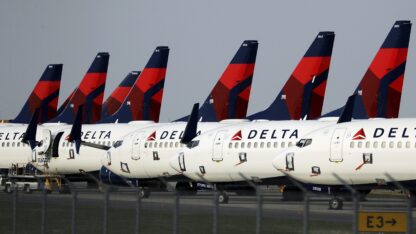Summit Highlights Importance of Logistics to Georgia’s Economy, Future Growth

Simply put, logistics is the way a product gets from point “A” to point “B.”
And the logistics sector is major economic driver in Georgia, as some 33,000 companies here directly rely on the state’s logistics infrastructure to move their products.
(To read the 2013 Georgia Center of Innovation for Logistics global report, click here.)
As part of the fifth annual Georgia Logistics Summit at the Georgia World Congress Center, officials representing various players in the state’s transportation system Wednesday gave an update on how that infrastructure is fairing.
Their consensus: Good, overall.
But they emphasize Georgia’s need to grow its current system to accommodate future demands.
That concern about the future is part of the thinking behind this year’s theme, “Connect. Compete. Grow.”
“We will better connect our logistics assets—highway to rail, rail to port,” Gov. Nathan Deal promised some 2,000 attendees. “We will compete with any state out there in the business of attracting business . And we will grow because of all of it,” said Deal.
Georgia’s logistics infrastructure is already contributing to the state’s growth, said Bob Pertierra of the Metro Atlanta Chamber of Commerce.
He pointed to Atlanta’s airport as a key factor in attracting Kia Motors, which three years ago opened a manufacturing plant in West Point, near Columbus.
He said it had a domino effect.
“Asiana Airlines, soon after they made that announcement, started cargo service. And more than 65% of the volume on that Asiana cargo flight every week is destined for the Kia plant.”
If not by air, many of the goods and products moving through Georgia pass through ports at Savannah and Brunswick.
Georgia Ports Authority executive director Curtis Folks said that’s why deepening the Savannah Harbor to accommodate bigger ships is one of the most pressing issues facing the state.
“If we can’t get the big ships to the US –those are the most efficient modes of transportation today—then our competitive environment is going to be reduced,” Folks said.
Equally important to air and sea ports is the infrastructure that connects them.
That’s why trucking and railroad industry heads said maintenance of current roadways and rails is among their top concerns.
9(MDAxODM0MDY4MDEyMTY4NDA3MzI3YjkzMw004))








